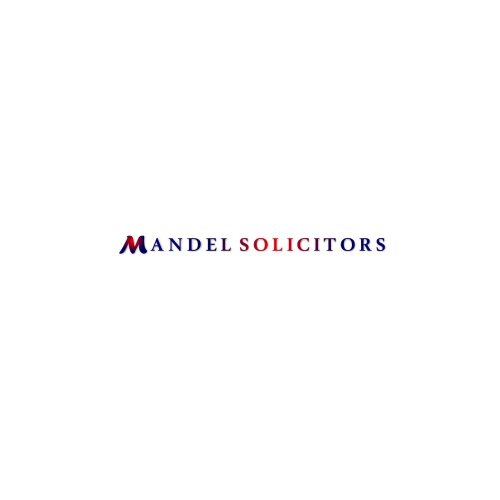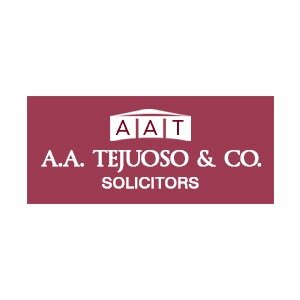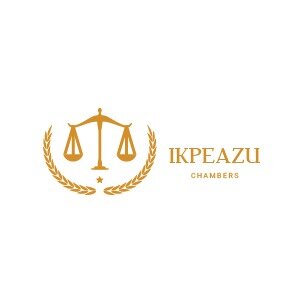Best Tax Lawyers in Nigeria
Share your needs with us, get contacted by law firms.
Free. Takes 2 min.
Or refine your search by selecting a city:
List of the best lawyers in Nigeria
Legal guides written by Adeola Oyinlade & Co:
- Procedure and Requirements for Work Permit and Visas in Nigeria
- The Step-By-Step Procedure of How to Apply for Microfinance Bank License Online in Nigeria
- How to Ensure the Smooth Recognition and Enforcement of Foreign Judgments in Nigeria
Nigeria Tax Legal Articles
Browse our 1 legal article about Tax in Nigeria written by expert lawyers.
- An Overview of The Taxation of Non-Resident Companies in Nigeria
- A company in Nigeria, whether resident or non-resident, is subject to taxation if its income falls within the scope of the Companies Incomes Tax Act. It is important to note that Nigerian tax laws do not exempt the income of a branch of a business or company from taxation. While... Read more →
About Tax Law in Nigeria
Tax law in Nigeria is governed by multiple statutes and regulations aimed at providing a structured system for the collection and assessment of taxes. The Federal Inland Revenue Service (FIRS) is the major agency responsible for tax administration at the federal level, while State Internal Revenue Services manage state-level taxation. The tax system in Nigeria includes income tax, company income tax, value-added tax (VAT), capital gains tax, and custom duties, among others. Compliance is mandatory, and the government has been making concerted efforts to enhance transparency and efficiency in tax collection.
Why You May Need a Lawyer
Engaging a lawyer with expertise in tax law can be crucial in several situations. Common scenarios include:
- Navigating complex tax regulations and ensuring compliance with the laws.
- Resolving disputes with tax authorities, such as contesting tax assessments and penalties.
- Seeking advice on tax planning and structuring to minimize liabilities legally.
- Assisting corporate entities with tax audits and investigations.
- Advising on tax implications for investments and transactions.
- Representation in tax tribunal hearings or court cases.
Local Laws Overview
Nigeria’s tax laws are detailed across various pieces of legislation. Key aspects include:
- Personal Income Tax Act (PITA): Governs the taxation of individuals, proprietary businesses, and partnerships.
- Companies Income Tax Act (CITA): Applies to all resident and non-resident companies doing business in Nigeria, except those engaged in petroleum operations.
- Value Added Tax Act (VAT): Imposes a tax on the supply of goods and services, currently set at 7.5%.
- Education Tax Act: Mandates companies to contribute 2% of their assessable profits to the Tertiary Education Trust Fund.
- Capital Gains Tax Act: levies tax on gains obtained from the disposal of chargeable assets.
- Stamp Duties Act: Imposes duty on certain documents and transactions.
Compliance with these laws is mandatory, and the penalties for non-compliance can be severe, including fines and imprisonment.
Frequently Asked Questions
What is the deadline for filing tax returns in Nigeria?
Individuals must file their tax returns by March 31st of every year. Companies are required to file their returns within six months after their accounting year.
Who is liable to pay personal income tax?
Individuals earning an income in Nigeria, including salary earners, business owners, and companies, are liable to pay personal income tax under PITA.
What is withholding tax?
Withholding tax is an advance payment of tax deducted at source on certain transactions, and it is credited against the final tax liability of the taxpayer.
Are there tax incentives for businesses in Nigeria?
Yes, the Nigerian government offers various tax incentives, including pioneer status, capital allowances, and reduced tax rates for certain sectors to encourage investment.
How is VAT applied in Nigeria?
VAT is a consumption tax levied on goods and services supplied in Nigeria, and the current rate is 7.5%.
What are the penalties for late payment of taxes?
Penalties can include fines, interest on the overdue amount, and in severe cases, prosecution, and imprisonment.
Can foreign companies be taxed in Nigeria?
Yes, foreign companies with a permanent establishment in Nigeria are subject to taxes on the income derived from their Nigerian operations.
How often are tax audits conducted?
Tax audits are typically conducted annually, but the frequency can vary depending on the taxpayer's compliance history and industry sector.
Is e-filing available for tax returns?
Yes, the FIRS offers an electronic filing system that allows taxpayers to file tax returns and pay taxes online.
What is the role of the Joint Tax Board (JTB)?
The JTB is responsible for harmonizing tax administration across Nigeria and ensures uniformity in tax policies at the federal and state levels.
Additional Resources
For those seeking more information or assistance on tax matters in Nigeria, consider the following resources:
- Federal Inland Revenue Service (FIRS): The primary agency for federal tax administration.
- State Internal Revenue Services: Responsible for managing state-level taxes and ensuring compliance within their jurisdictions.
- Nigerian Bar Association (NBA): Offers a directory of lawyers that can assist with tax law matters.
- Chartered Institute of Taxation of Nigeria (CITN): Provides education and resources for professionals in tax administration and policy.
Next Steps
If you require legal assistance in tax matters, consider the following steps:
- Identify your specific legal needs and seek out a tax attorney or law firm with relevant expertise.
- Check credentials and consult reviews or references to ensure the lawyer’s proficiency in the field of tax law.
- Prepare all necessary documents, such as tax returns and correspondence from tax authorities, before consultation.
- Discuss fees and payment terms with your lawyer to foster transparency and understanding.
- Follow the legal advice provided promptly to avoid penalties and enhance compliance.
By following these steps, you can make informed decisions and effectively handle any tax-related legal challenges in Nigeria.
Lawzana helps you find the best lawyers and law firms in Nigeria through a curated and pre-screened list of qualified legal professionals. Our platform offers rankings and detailed profiles of attorneys and law firms, allowing you to compare based on practice areas, including Tax, experience, and client feedback.
Each profile includes a description of the firm's areas of practice, client reviews, team members and partners, year of establishment, spoken languages, office locations, contact information, social media presence, and any published articles or resources. Most firms on our platform speak English and are experienced in both local and international legal matters.
Get a quote from top-rated law firms in Nigeria — quickly, securely, and without unnecessary hassle.
Disclaimer:
The information provided on this page is for general informational purposes only and does not constitute legal advice. While we strive to ensure the accuracy and relevance of the content, legal information may change over time, and interpretations of the law can vary. You should always consult with a qualified legal professional for advice specific to your situation.
We disclaim all liability for actions taken or not taken based on the content of this page. If you believe any information is incorrect or outdated, please contact us, and we will review and update it where appropriate.
Browse tax law firms by city in Nigeria
Refine your search by selecting a city.

















